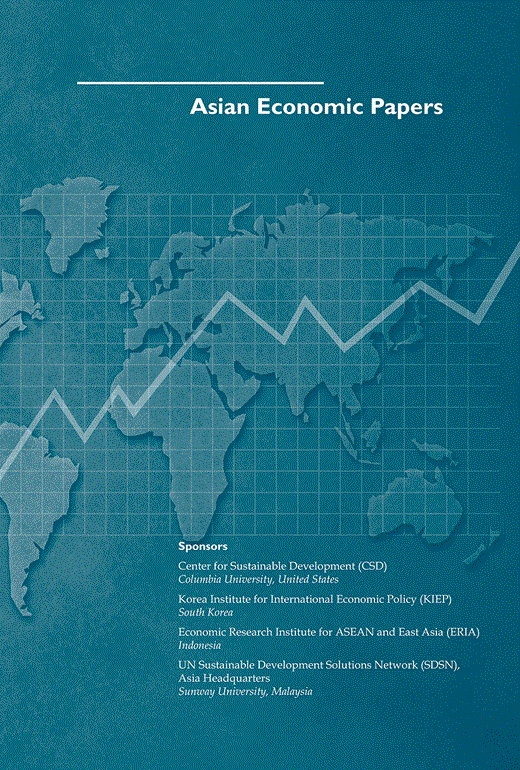冷战 2.0 带来的经济去全球化威胁:日本视角
IF 5.3
3区 经济学
Q1 ECONOMICS
引用次数: 0
摘要
东北亚地缘政治紧张局势的加剧和中美对抗使日本的政策辩论转向国家安全,而经济讨论则变得单薄。为了重新获得更加平衡的政策讨论,本文试图从数量上理解美国及其盟国的出口管制对东亚机械生产网络和日本贸易表现的影响。主要结论包括以下四点:首先,日本政府的大多数供应链脱钩政策都是为了应对重要物品供应的突然中断,而战略竞争脱钩政策仅局限于与美国的合作中。其次,从行业层面的国际贸易统计数据来看,至少在 2022 年之前,没有明显证据表明美国的出口管制会导致东亚供应链脱钩。第三,负面贸易效应在产品或单个企业层面显现,美国及其盟国近期加强出口管制可能会加剧对机械生产网络的负面影响。第四,尽管贸易管制的范围会进一步扩大,但供应链脱钩最终很可能只是局部的。本文认为,日本等中等强国必须制定平衡的贸易政策。本文章由计算机程序翻译,如有差异,请以英文原文为准。
The Threat of Economic Deglobalization from Cold War 2.0: A Japanese Perspective
The intensified geopolitical tension in Northeast Asia and the U.S.–China confrontation have shifted policy debates in Japan toward national security while the economic discussion has become thin. To regain more balanced policy talks, this paper tries to quantitatively comprehend the effect of the United States and its allies’ export controls on the East Asian machinery production networks and Japan's trade performance. Major findings include the following four points: First, most of the supply chain decoupling policies by the Japanese government have been the ones to prepare for sudden interruptions of the supply of important items while decoupling policies for strategic competition are limited only in the context of the cooperation with the United States. Second, international trade statistics at the industry level do not show clear evidence of supply chain decoupling in East Asia due to the U.S. export controls, at least up to 2022. Third, however, the negative trade effect becomes visible at the product or individual firms’ level, and the recent strengthening of the United States and its allies’ export controls may augment the negative effect on machinery production networks. Fourth, although the scope of trade controls would expand further, the supply chain decoupling is likely to end up with a partial one. The paper claims that middle powers such as Japan must establish a well-balanced trade policy.
求助全文
通过发布文献求助,成功后即可免费获取论文全文。
去求助
来源期刊

Asian Economic Papers
ECONOMICS-
CiteScore
7.50
自引率
0.00%
发文量
16
期刊介绍:
The journal Asian Economic Papers (AEP) is supported by several prominent institutions, including the Center for Sustainable Development at Columbia University in the United States. This shows that there is a strong emphasis on sustainable development within the journal's scope. Additionally, the Korea Institute for International Economic Policy in South Korea, the UN Sustainable Development Solutions Network (SDSN) in Malaysia, and the Economic Research Institute for ASEAN and East Asia in Indonesia also sponsor AEP. The articles published in AEP focus on conducting thorough and rigorous analyses of significant economic issues pertaining to specific Asian economies or the broader Asian region. The aim is to gain a deeper understanding of these issues and provide innovative solutions. By offering creative solutions to economic challenges, AEP contributes to the discourse and policymaking that impact the Asian economies and region as a whole.
 求助内容:
求助内容: 应助结果提醒方式:
应助结果提醒方式:


